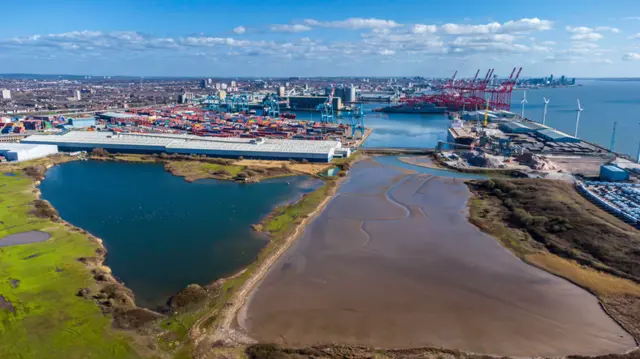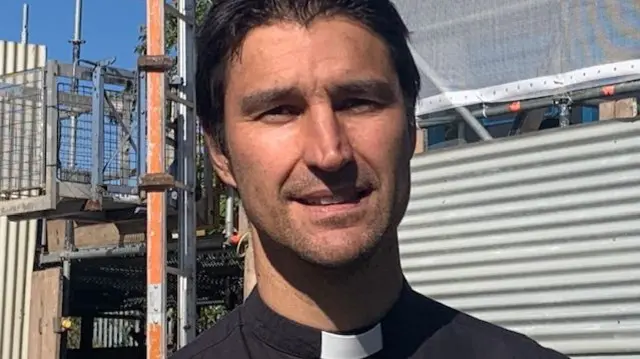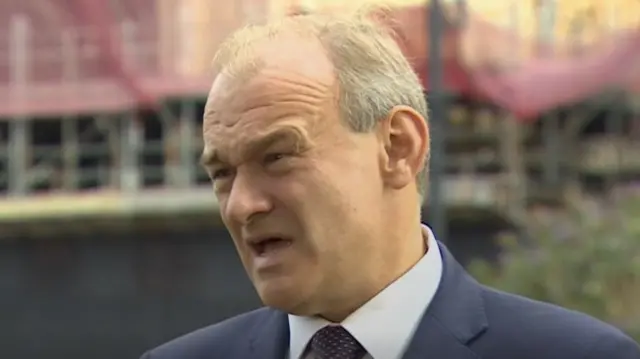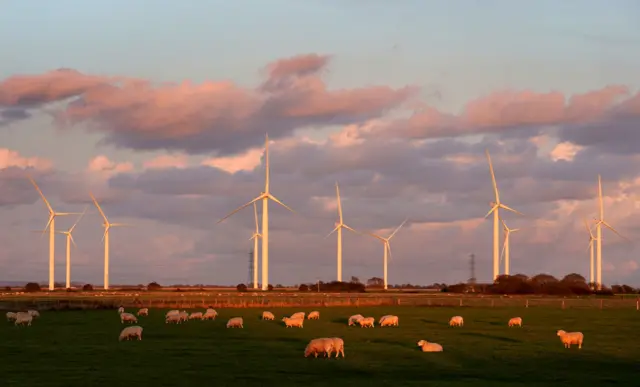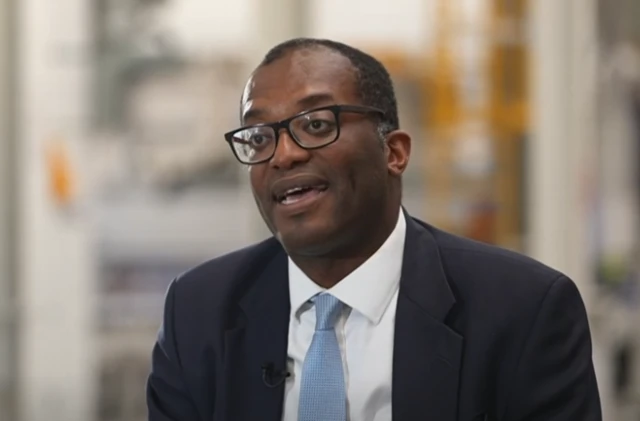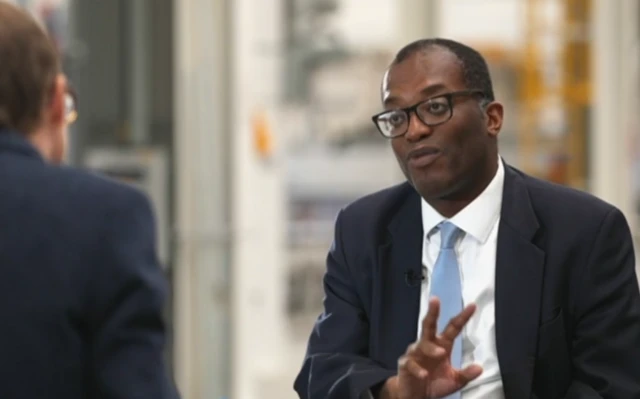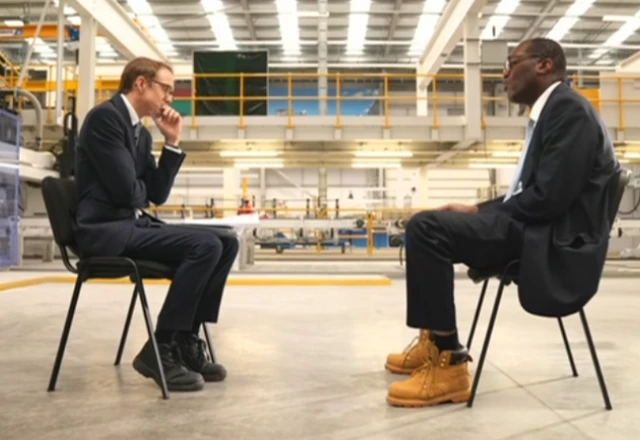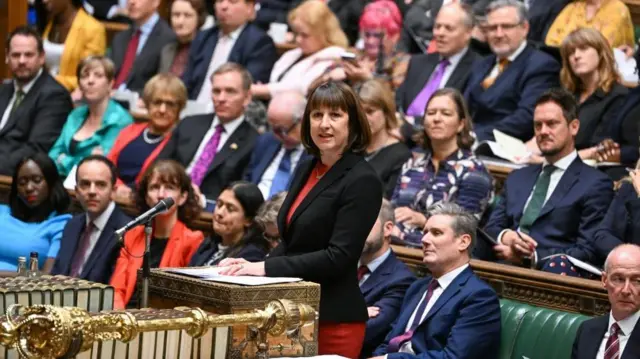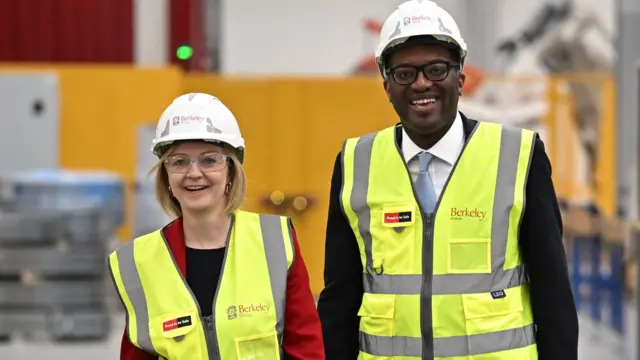What happened today?published at 20:58 BST 23 September 2022
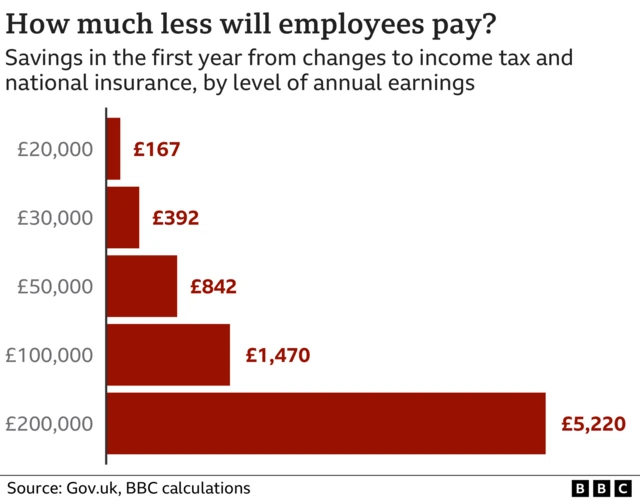 Image source, .
Image source, .We're going to wrap up our live coverage now - let's take a look at what we learned today:
What happened? Kwasi Kwarteng delivered a sweeping mini-budget in his first major speech as chancellor.
What was announced?
- Cuts to stamp duty foe homebuyers in England and Northern Ireland
- A cut in the basic rate of income tax will be brought forward by a year, and the 45% rate was scrapped
- A hike in National Insurance contributions was reversed
- Rules around universal credit were tightened, by reducing benefits if people don't fulfil job search commitments
- A UK-wide rise in corporation tax, which was due to increase from 19% to 25% in April 2023, was cancelled
- A cap on bankers' bonuses was scrapped
Find an easy-to-read list of all today's announcements here.
How was it received?
- The pound fell to a fresh 37-year low against the dollar as financial markets
- The government was accused by Labour and some charities of prioritising the richest proportion of the population
- Shadow chancellor Rachel Reeves called it "the wrong tax cut, at the wrong time"
- Meanwhile, Lib Dem leader Sir Ed Davey said the government was "totally out of touch with ordinary people and businesses"
- In an interview with the BBC, Kwarteng defended his policies, saying that they weren't a gamble
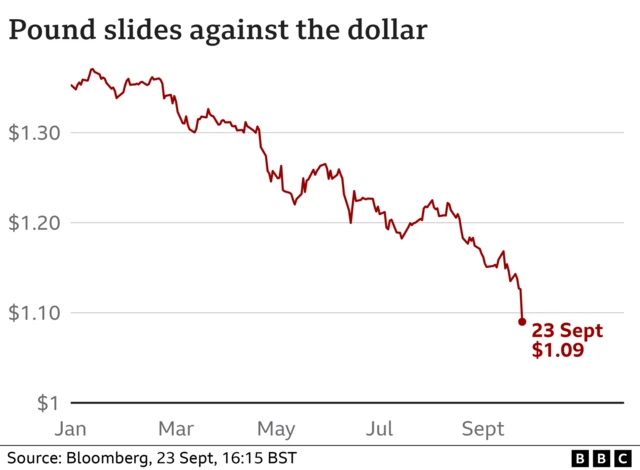 Image source, .
Image source, .
